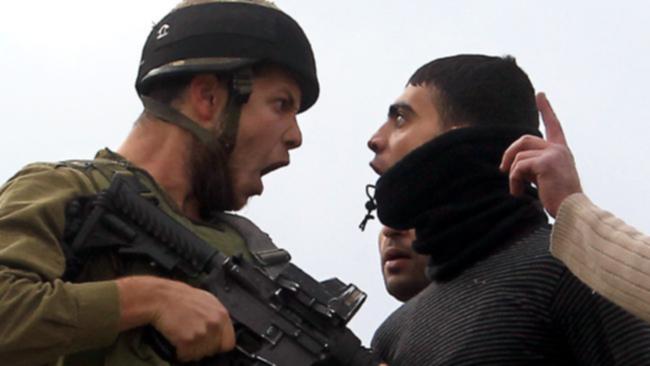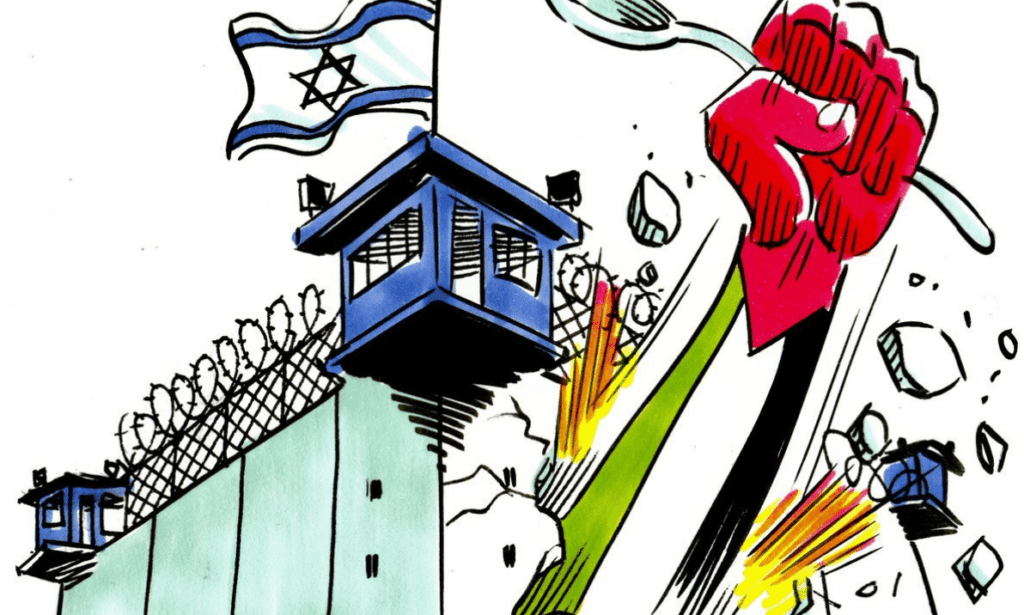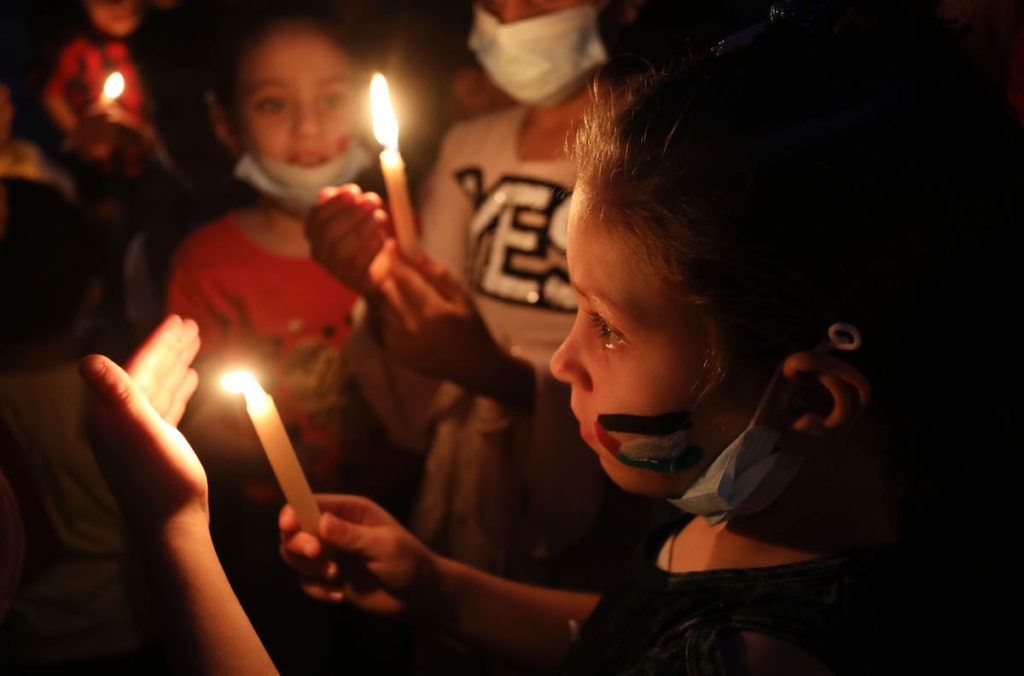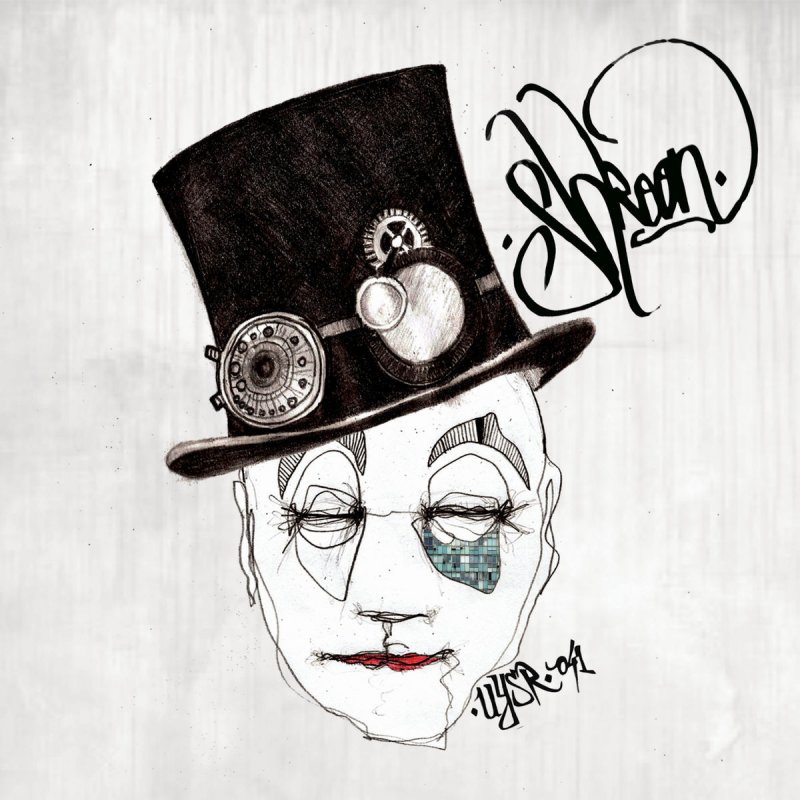
From the dreadful experiences since 1948, along with the heartache, the normalized deaths, the destruction, and the never ending fear, to the utter exhaustion of having to pick up pieces you didn’t help shatter. Mourning over dismembered bodies you didn’t help kill, and ultimately, feeling estranged in a place you once called ‘home.’ No one can really understand a Palestinian’s pain, except for a Palestinian.
In German-Syrian band Shkoon’s song ‘Build Your Castles,’ we come to see that the “conflict” between the oppressor and those being oppressed, is not actually a conflict. If anything, it is a one-sided infliction of pain that only those on the receiving end of it can truly understand what it’s like. We learn, however, that despite the fact that it is not a two-sided fight, despite the fact that one side has the “upper hand,” it is that very unbearable pain that Palestinians have borne time and time again, that makes them the most eligible to fight.
The song starts by talking about the oppressors spreading their power on the people. ‘Sheyed kesoorak 3al mazera3,’ literally meaning ‘build your castles on the farms.’ In other words, this lyric sheds light on the oppressors, whether it’s Israel, the Palestinian military, or anyone extending their territory by taking land from the Palestinians and building their castles – or whatever strikes their fancy – on top of it.
‘Men kedna w 3arak edeyna.’ Here, these words touch on the pain of working so hard your whole life for something to work, and some outsider nonchalantly comes by and takes it all apart. This baseless, absurd injustice is what pains and frustrates Palestinians day in and day out. So much so, that they have grown accustomed to it, despite it hurting like hell every time it makes itself known.
‘Wel khamarat ganb el masane3.’ Again, the writer very graphically depicts the picture of the Palestinians’ frustration, bars halting, and slowing down the factory’s output. In another sense, the dreams and aspirations of Palestinians are being killed because of ‘el khamarat.’ Here, ‘el khamarat’ are the oppressors, the intoxicators, or anyone who derails the people’s fight. ‘Wal segn matra7 el genena,’ meaning the prison has now replaced the gardens, revealing to the listener a child that was never entitled to his/her right to a childhood, and one whose sheer innocence was stifled and killed instead.
This limitless oppression is further highlighted in the lyric, ‘watlak kelabak fe shaware3,’ meaning, the dogs have been left to run wild and free, with no mercy whatsoever. These dictators, these oppressors, these killers of hope, have been let loose with no accountability, not even for their exemption to kill people for no reason. But, Palestinian resilience strikes once again. ‘Wa2fal zanazeenak 3aleina,’ meaning you have closed the prison room on us, but even then, we stand strong. Even then, we find space to breathe within the unbearable suffocation you have inflicted on us.
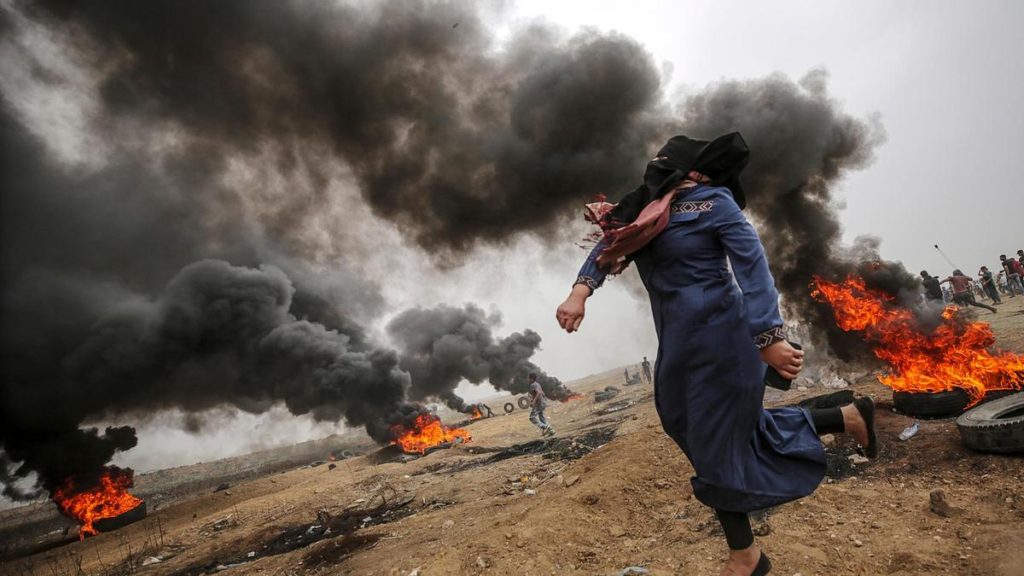
Here more than ever, the depths of heartache for Palestinians is seen in the words of ‘Wet2al 3aleina fel maweja3.’ The pain is so agonizing, that the people say “take it easy.” “Et2al 3aleina,” not because we can’t take it, but because it’s enough. ‘E7na etwaja3na wetkafeina,’ meaning the pain has overstayed its welcome so much so, that it has numbed us out. Yet every time, we will outlive it. Every time, we will use it to empower us rather than take us down.
The most beautiful part of the song are in the words, ‘w 3erefna ro7na weltekena,’ as it is so telling of finding a level of peace that despite being so unfounded, it is the only weight to lean on, the only way to push through the chaos. Meaning, “we have known our souls, and we have met the people inside us,” we come to see a level of self-realization that enables the Palestinians to know who they are so clearly and confidently, that no one can confuse that clarity or shatter that confidence. Within the depths of their chaos, within the absurdity of their relentless oppression, their understanding of who they are has left them with a level of peace and patience that cannot be tested. In the vocalist Ameen Khayer Shkoon’s words, their persistence through the seemingly never-ending darkness has made them like a mountain, so strong that even a tornado cannot shake. It may take days, years, decades, or even centuries, but if their hope has surmounted the pain all this time, if the mountain has remained unshakeable throughout all these tornados, they will maintain their strength against all odds.
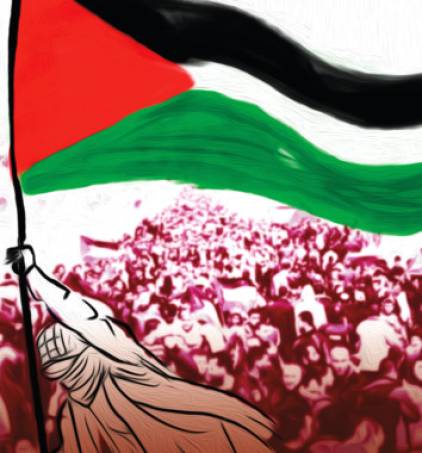
And finally, ‘da2eit sa3etna webtadeyna,’ meaning our clock is running, and we are on our way to the end. This longing for justice has been killed for too long, but no matter the length of time, and no matter the level of pain, the Palestinians will keep fighting for their justice in the only way they know how, by pushing through till the end. And for them, the end is not when the pain is too intense, or when their tongues are tired out. It is when justice has been served. It is their perseverance, their resilience, their unbeatable state of mind and refusal of accepting their injustice as their own inevitable fate, that makes Palestinians wholeheartedly know that they can not only fight the fight, but that they will win it too. To put it more accurately, for any Palestinian, “E7na etwaja3na waktafeina” is not what ends the fight, but it is living on a farm whose castles cannot be built upon. And more importantly, living on a farm where no dog can silence their right to call it home.
